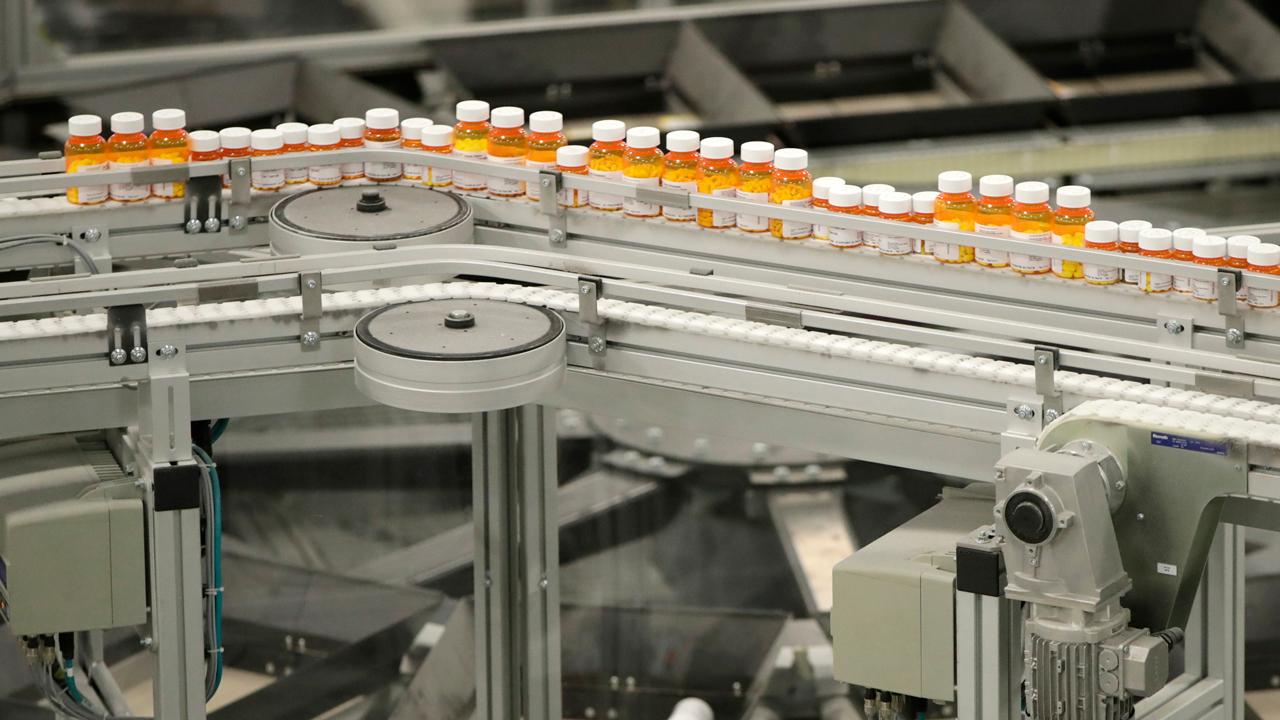Big pharma relies on old talking points to battle new scrutiny
The CEOs of several top pharmaceutical companies on Tuesday relied on historical industry talking points to defend against intensifying federal scruinty over increasing U.S. drug costs, claiming that prices in the country are higher than other industrial nations to recoup investments in research and development.
The focus on international pricing by lawmakers on the Senate Finance Committee comes as the Trump administration considers a proposal to tie reimbursement for prescription treatments covered by Medicare to global costs, a plan that drugmakers are vehemently opposed to because, among other things, it would target some of the industry's most lucrative drugs.
Also center-stage at Tuesday’s hearing – which featured CEOs of AbbVie, Merck, Pfizer, Sanofi, Bristol-Myers Squibb and AstraZeneca, along with a top Johnson & Johnson executive – were the legal protections that companies receive for blockbuster drugs that give the industry largely unfettered ability to blunt competition and maintain monopoly pricing.
Along with claims that U.S. drug sales underpin the discovery of new treatments, the executives said removing the rebates that are passed between companies and middleman price negotiators – a shift underway by the White House -- would lead to lower list costs. Some lawmakers, however, labeled that as a diversionary tactic.
The industry is “stonewalling on the key issue, which is actually lowering list prices and reducing those list prices are the easiest way for American consumers to pay less,” Sen. Ron Wyden of Oregon, the panel’s top Democrat, said. “All this other stuff is window dressing.”
While pharmaceutical companies largely make a profit in every country they sell in, the U.S. does not have as many federal protections against rising costs when compared to other nations like those in the European Union. As a result, prices tend to be higher for the vast majority of prescription drugs, leading some consumers to travel to other countries to buy treatments.
There is no question “the U.S. has some of the highest prices in the world,” AbbVie CEO Richard Gonzalez said. “Our system is built around a variety of pricing around the world, but the overall system supports our R&D model.”
Some drug companies will soon need to offer evidence of that argument. Wyden and Senate Finance Chairman Chuck Grassley, R-Iowa, last week pressed Eli Lilly & Co, Novo Nordisk and Sanofi on the rising cost of insulin and asked the companies to provide information on R&D costs.
| Ticker | Security | Last | Change | Change % |
|---|---|---|---|---|
| ABBV | ABBVIE INC. | 223.43 | +4.41 | +2.01% |
| AZN | ASTRAZENECA PLC | 188.42 | -4.68 | -2.42% |
| BMY | BRISTOL MYERS SQUIBB CO. | 61.99 | +2.47 | +4.15% |
| JNJ | JOHNSON & JOHNSON | 239.99 | +2.20 | +0.93% |
| MRK | MERCK & CO. INC. | 121.93 | +2.18 | +1.82% |
| PFE | PFIZER INC. | 27.22 | +0.73 | +2.76% |
| SNY | SANOFI | 47.83 | +0.34 | +0.72% |
Lawmakers focused much of their direct questioning on AbbVie, which manufactures Humira – a drug to treat arthritis, Crohn’s disease and other diseases that earned the North Chicago-based company nearly $20 billion in revenue in 2018.
AbbVie has enjoyed patent protections on the treatment since its approval in 2002. While a cheaper, copycat treatment is available in Europe, a Humira biosimilar will not be available in the U.S. until 2023 at the earliest. Gonzalez argued – despite AbbVie suing Amgen over plans to launch a generic version – that it did not block the introduction of a cheaper version.
“They came to us and they wanted access to the portfolio,” he said on Tuesday. “We licensed them a patent portfolio, they pay us a royalty.”
Such exclusivity arrangements could soon face new congressional scrutiny. Sen. John Cornyn, R-Texas, said he would press Senate Judiciary Chairman Lindsey Graham, R-S.C., to hold a hearing on the topic.
CLICK HERE TO GET THE FOX BUSINESS APP
Of the seven executives that testified on Tuesday, only Pfizer said it used savings from the GOP-led tax law – which lowered the corporate tax rate to 21 percent – to directly lower drug costs.




















